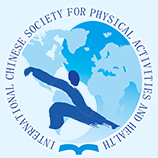Document Type
Abstract
Publication Date
2-2024
Abstract
Purpose: The introduction of the "Opinions on Comprehensively Deepening Curriculum Reform and Implementing the Fundamental Task of Establishing Virtues and Cultivating People" marked the initiation of comprehensive curriculum reform across all disciplines in our country, with a particular emphasis on key competencies. Among these competencies, those integral to the Physical Education (PE) curriculum have garnered increasing attention from scholars. Building upon this foundation, this paper systematically reviews and analyzes pertinent research on the key competencies within the PE curriculum. The exploration covers the development process, current research hotspots, and future prospects in this field, aiming to serve as a reference for future research on key competencies within the PE curriculum in our country. Methods: Employing CNKI as the database, the search keywords included "key competencies of PE curriculum," "key competencies of PE and health," "key competencies of students' PE," and "key competencies of PE teachers." Literature sources were sourced from SCI, SSCI, and the Peking University Core. A total of 130 relevant literatures were identified and subsequently analyzed using CiteSpace software. Results: The key competencies of PE curriculum have experienced three stages of development. The two research peaks are in 2018 and 2022, which’s closely related to Compulsory Education Curriculum Standards for PE and Health(2022) and High School Curriculum Standards for PE and Health(2017) in recent years. The promulgation of physical education (PE) curriculum standards in basic education not only provides a guiding framework for schools in the future but also serves as a crucial foundation for scholars to conduct in-depth research. The exploration of key competencies within the PE curriculum encompasses various aspects, including its fundamental meaning, constituent elements, training mechanisms, evaluation systems, developmental challenges, and practical approaches. Given that the key competencies of the PE curriculum are still in the early stages of development, they draw inspiration from the commendable experiences of foreign PE curricula. Furthermore, the assessment and training mechanisms and systems for these key competencies remain imperfect, and empirical research in this domain is still insufficient. Conclusion: It remains essential to explore the theoretical foundations of key competencies within the PE curriculum from diverse perspectives to ensure their firm establishment. Simultaneously, there is a commitment to prioritize the development of key competencies among PE teachers. Innovative approaches, such as cultivating models and evaluation systems for key competencies tailored to students at different levels or for PE teachers, will be implemented to facilitate further empirical research. This effort aims to genuinely achieve the vision of creating "sports-oriented individuals" and collectively build a promising future for school physical education.
DOI
https://doi.org/10.18122/ijpah.3.1.34.boisestate
Recommended Citation
Xue, Liping and Yin, Zhihua
(2024)
"A123: Research Progress and Review of Key Competencies of Physical Education Curriculum in China,"
International Journal of Physical Activity and Health: Vol. 3:
Iss.
1, Article 34.
DOI: https://doi.org/10.18122/ijpah.3.1.34.boisestate
Available at:
https://scholarworks.boisestate.edu/ijpah/vol3/iss1/34
Included in
Exercise Science Commons, Health and Physical Education Commons, Public Health Commons, Sports Studies Commons



